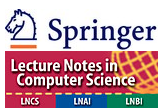FACS@Besançon, let's go!
The component-based software development approach has emerged as a promising paradigm to cope with the complexity of present-day software systems by bringing sound engineering principles into software engineering. However, many challenging conceptual and technological issues still remain in component-/service-based software development theory and practice. Moreover, the advent of cloud computing, cyber-physical systems, and of the Internet of things has brought to the fore new dimensions, such as quality of service, reconfiguration and robustness to withstand inevitable faults, which require established concepts to be revisited and new ones to be developed in order to meet the opportunities offered by those architectures.
FACS 2016 is concerned with how formal methods can be used to make component-based and service-oriented software development succeed. Formal methods have provided a foundation for component-based software by successfully addressing challenging issues such as mathematical models for components, composition and adaptation, or rigorous approaches to verification, deployment, testing, and certification.
Topics of interest
The conference seeks to address the applications of formal methods in all aspects of software components and services, with a particular focus on cyber-physical systems and the Internet of things. Specific topics include, but are not limited to:
- formal models for software components and their interaction
- formal aspects of services, service oriented architectures, and business processes
- formal methods and modeling languages for components and services
- model based and GUI based testing of components and services
- composition and deployment: models, calculi, languages
- component/service re-engineering and reuse
- models for QoS and other extra-functional properties (e.g., trust, compliance, security) of components and services
- industrial or experience reports, and case studies
- update and reconfiguration of component and service architectures
- component systems evolution and maintenance
- autonomic components and self-managed applications
- formal and rigorous approaches to software adaptation and self-adaptive systems
Application areas include cyber-physical systems, as well as real-time, safety-critical, secure and/or embedded systems.


